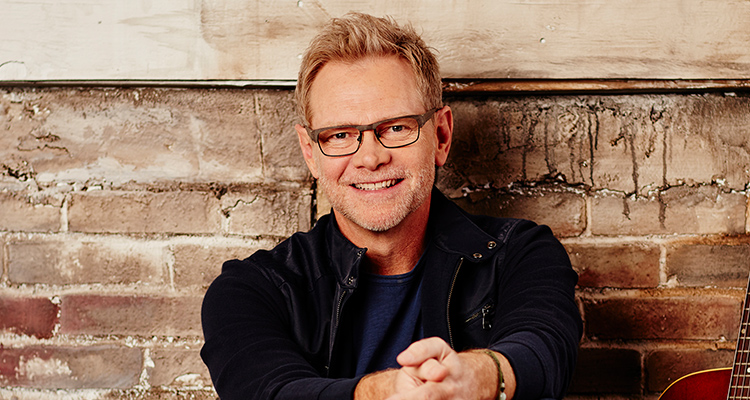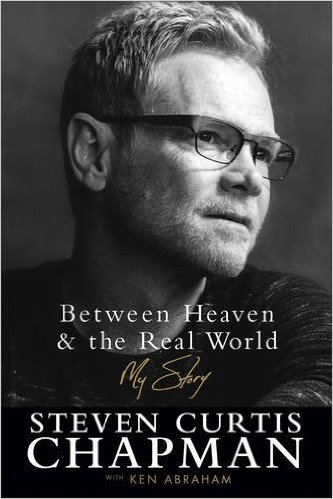It’s always one of the most humbling, incredible things for me to hear the stories of so many artists that will say what I say about Andrae Crouch & The Disciples, Dallas Holm, The Imperials, Keith Green and so many of these artists and people that I was influenced by… Now I hear the stories of Bart Millard or Matthew West or Mac Powell. When we were [recently] on tour, Mac and Mark Lee [from Third Day] said that when they first got The Great Adventure (buy) record, it blew their minds. “Man, we should do that with music.” I hear those things and it’s pretty incredible to think maybe my music has had that kind of influence on a lot of artists’ lives as well.
CCM: Speaking of The Great Adventure, around that time, you also made a considerable splash at crossing over into both country and pop. Was that an intentional strategy on your team’s part, or do you feel like it just happened to all align at the same time?
SCC: It was a little bit of both. I think Christian music at that point was really exploding in a big way. People were really discovering it. It was getting better, and better with more artists. By better, I think we had more money to make better sounding records. As the level and quality began to really grow, more and more people began to discover it. You had dc Talk making Christian hip hop and rap. You had BeBe & CeCe Winans, who are just two of the best singers on the planet that got put here singing about their faith and making these incredibe R&B records. That was around the time a lot of the labels, Sparrow in particular, was bought by Capitol and by the larger EMI at the time. “We want to put more money into this. We want to promote this, we want to market this and put the records in all the stores.” You don’t have to go to just Christian music stores now to find the records. This was long before iTunes. A lot of older people like me will actually remember those days. It was this perfect storm in a way. In the midst of that, I had the opportunity because I, along with others [like Amy Grant and Michael W. Smith], were leading the charge of how Christian music was growing and where it was going.
My sons [Caleb and Will] are killing it right now [in the indie rock band Colony House], and of course, I’m a proud dad. They’re doing music that is great art, that is woven together by the threads of their faith, but it’s in a very different way than I write songs and kind-of “push it out.” My answer in all those situations [about the potential to cross over] was, “I’m going to make the music that is honest.” I have to. I can’t do anything different. I can’t go sit down and say, “How can I be a little more subtle or veiled? Is there a way to do that?” I just need to write the songs that come out of me. If it’s a love song for my wife like “I Will Be Here,” then I don’t feel this compulsion to make sure I mention Jesus by name in every song, or any song. It’s more about just being really honest, creating art that is illuminated by my faith. Sometimes that’s going to be real obvious, sometimes it’s going to be more subtle.
CCM: Can you trace your musical evolution from the ’80s, to the ’90s, on through to now for us, and explain how you’ve been able to stay current with your sound?
SCC: My early music, even from the beginning, was really hard [to pinpoint]. I know I was a great frustration to a lot of reviewers and critics saying, “We don’t know what this guy is. Is he country? Is he rock and roll? Is he folk?” It’s got a little bit of all of it in there because that’s what I grew up listening to. It’s part bluegrass and part folk music because that’s what my dad played when I was growing up. Then I discovered The Doobie Brothers and the Eagles and rock n’ roll records from The Edgar Winter Group. There were elements of all that and it sort-of lit something up in me. I had this really strange fire burning that had fuel from so many different sources, even touches of classical music that moved me when I played in band. That all went into those early records.
As time has gone on, so much of the music went electronic. I can remember using the first drum machines and programming, the synthesizers and keyboards and sequencing and all that stuff. Then I began to think, “Okay, that’s not organically where I came from, but there are elements of it that I dig. How can I incorporate that? That’s a musical language right now.” If I want my message to connect with people where they’re living and they put this on in their car or in their office or in their home and it speaks the same musical language as the music that’s getting played and getting listened to right now, what are those elements that feel very organic to me?
CLICK “4” TO ADVANCE



Leave a Reply
You must be logged in to post a comment.